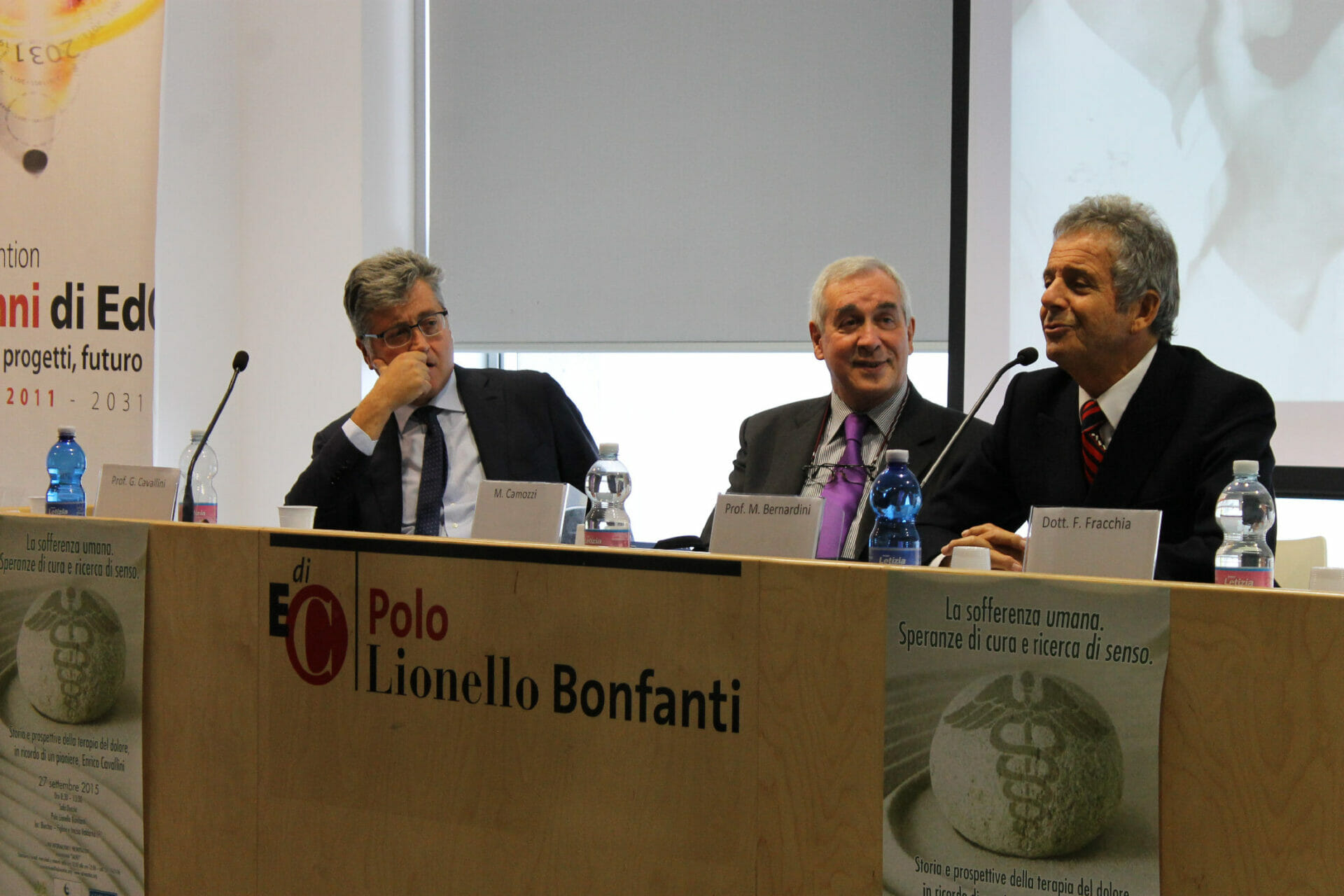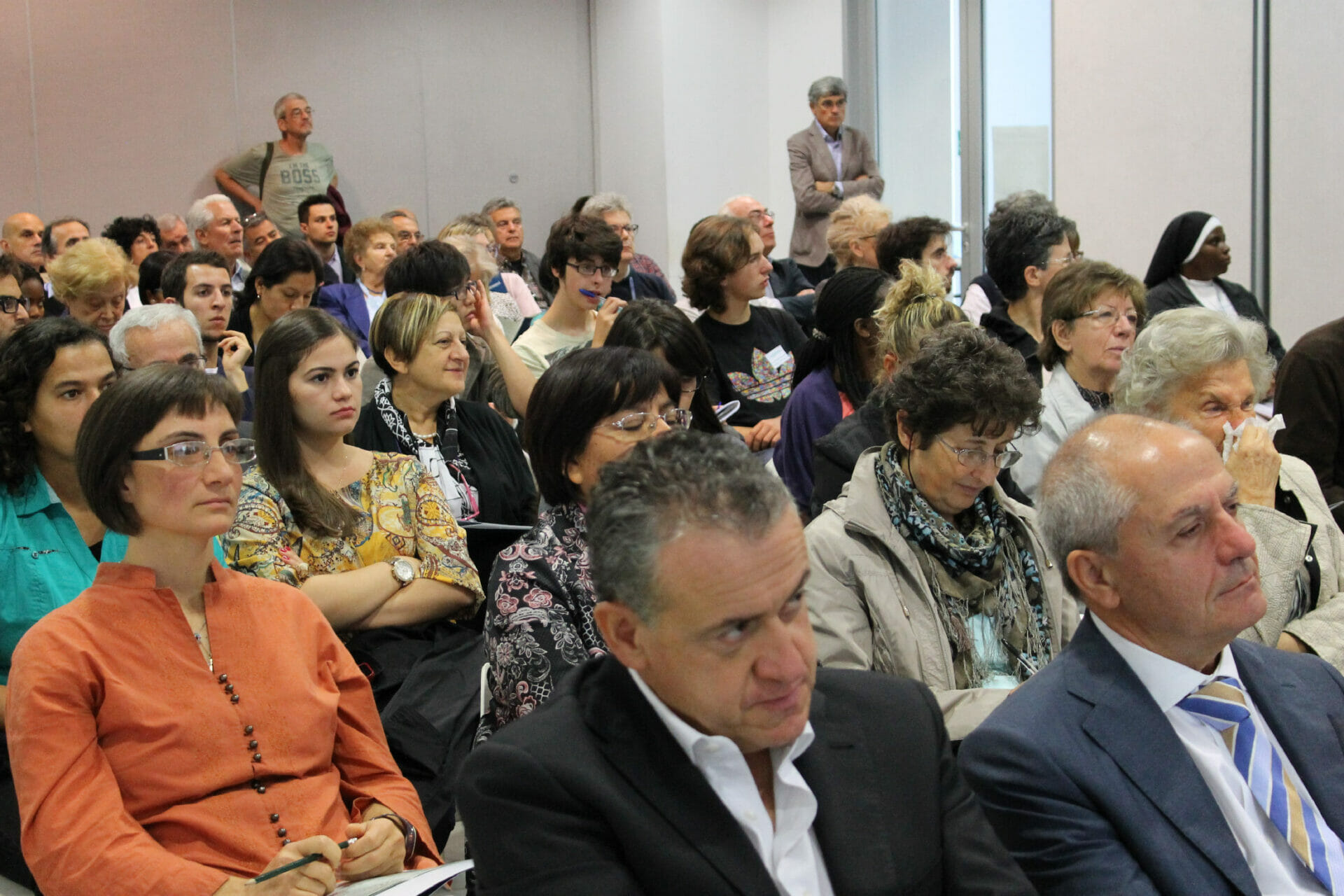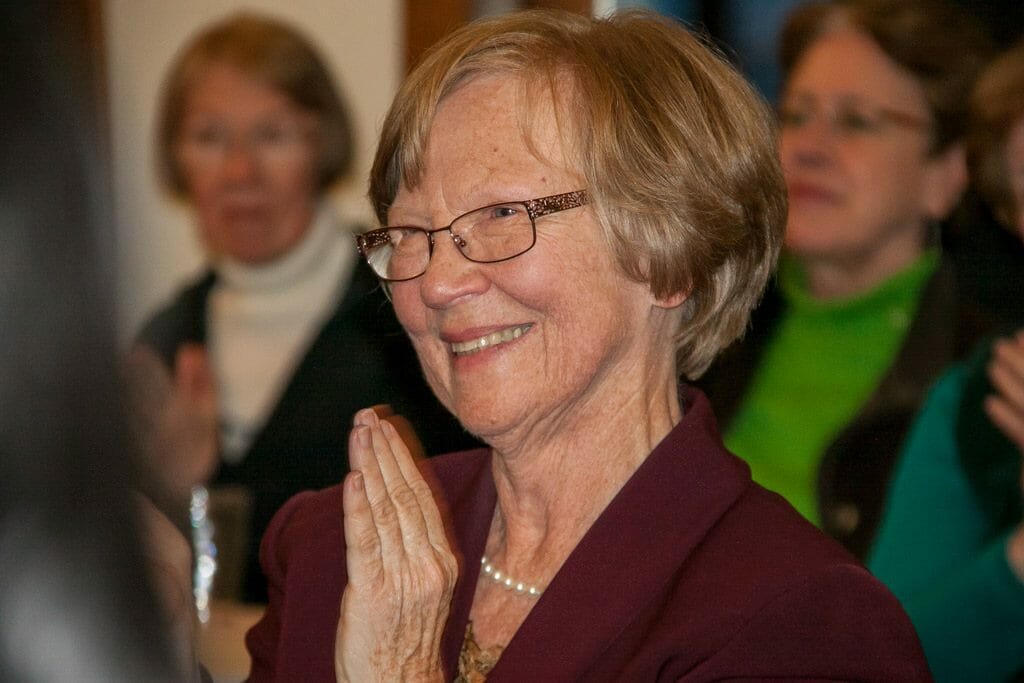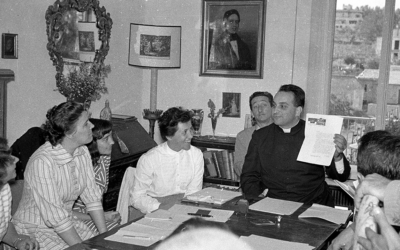 Nancy O’Donnell has worked as a psychotherapist with drug addicts and was once in charge of a medical centre that helps alcoholic women and their children. The issue of the meaning of suffering is central to the lives of people especially during their illness. We would like to ask if it is possible to face the problem of illness and find hope. “Suffering is part of every human life and it would be very difficult to help those who suffer if we ourselves have not found meaning in our own suffering. The path towards hope lies in this effort. Science offers new treatments and new therapies to improve the lives of many. The danger is when we let ourselves be fooled, believing that we will find a way not to get old, sick or suffer. If we seek only the hope of healing, we run the risk of deceiving ourselves, and this may lead to desperation which is the opposite of hope.” What is the role of psychology in the experience of the sick people, and in helping them to find hope? “We could summarise it in four points: the role of the personality and the possibility to change it, the importance of healthy relationships in facing disease, the need to know and accept one’s own limits, and the human capacity to be a gift to others. Personality: being optimistic or having a positive attitude may reduce the risk of illnesses and chronic disorders. At the Davis University in California, they discovered that writing down each day the things you are grateful for helped to increase happiness. The results were more significant when compared with a group that was asked to note down instead, only the things that had provoked greater stress.
Nancy O’Donnell has worked as a psychotherapist with drug addicts and was once in charge of a medical centre that helps alcoholic women and their children. The issue of the meaning of suffering is central to the lives of people especially during their illness. We would like to ask if it is possible to face the problem of illness and find hope. “Suffering is part of every human life and it would be very difficult to help those who suffer if we ourselves have not found meaning in our own suffering. The path towards hope lies in this effort. Science offers new treatments and new therapies to improve the lives of many. The danger is when we let ourselves be fooled, believing that we will find a way not to get old, sick or suffer. If we seek only the hope of healing, we run the risk of deceiving ourselves, and this may lead to desperation which is the opposite of hope.” What is the role of psychology in the experience of the sick people, and in helping them to find hope? “We could summarise it in four points: the role of the personality and the possibility to change it, the importance of healthy relationships in facing disease, the need to know and accept one’s own limits, and the human capacity to be a gift to others. Personality: being optimistic or having a positive attitude may reduce the risk of illnesses and chronic disorders. At the Davis University in California, they discovered that writing down each day the things you are grateful for helped to increase happiness. The results were more significant when compared with a group that was asked to note down instead, only the things that had provoked greater stress.  The second point: relationships. From the moment we are born, we have the capacity to establish relationships. The mental health of every person depends on his capacity to “coordinate” himself and “tune in” with others. The human mind is healthy when it possesses some strategic relational skills that allow it to “open up” to a multitude of social realities, that is, with the ability to “perceive” the others and their diversity in an adequate manner. If our identity is relational, it would be logical in moments when nurturing hope becomes a challenge to find the support of people close to us and with whom we have built deep relationships which strengthen the positive energy we need to remain hopeful. Furthermore, not accepting one’s own limits is one of the most typical difficulties people have today. The limit appears through the person’s condition and his/her story, through those experiences that imply the risk of frustration. In a world that offers us a life “without limits,” the onset of illness takes on numerous expressions of that limitation which becomes a decisive transition towards achieving one’s own fulfillment. Lastly, being a gift for the others even when your physical strength is greatly reduced makes a person play an active role always. This is where you acquire a dignity that is born in the depths of our being.”
The second point: relationships. From the moment we are born, we have the capacity to establish relationships. The mental health of every person depends on his capacity to “coordinate” himself and “tune in” with others. The human mind is healthy when it possesses some strategic relational skills that allow it to “open up” to a multitude of social realities, that is, with the ability to “perceive” the others and their diversity in an adequate manner. If our identity is relational, it would be logical in moments when nurturing hope becomes a challenge to find the support of people close to us and with whom we have built deep relationships which strengthen the positive energy we need to remain hopeful. Furthermore, not accepting one’s own limits is one of the most typical difficulties people have today. The limit appears through the person’s condition and his/her story, through those experiences that imply the risk of frustration. In a world that offers us a life “without limits,” the onset of illness takes on numerous expressions of that limitation which becomes a decisive transition towards achieving one’s own fulfillment. Lastly, being a gift for the others even when your physical strength is greatly reduced makes a person play an active role always. This is where you acquire a dignity that is born in the depths of our being.”
Be faithful
Be faithful





0 Comments